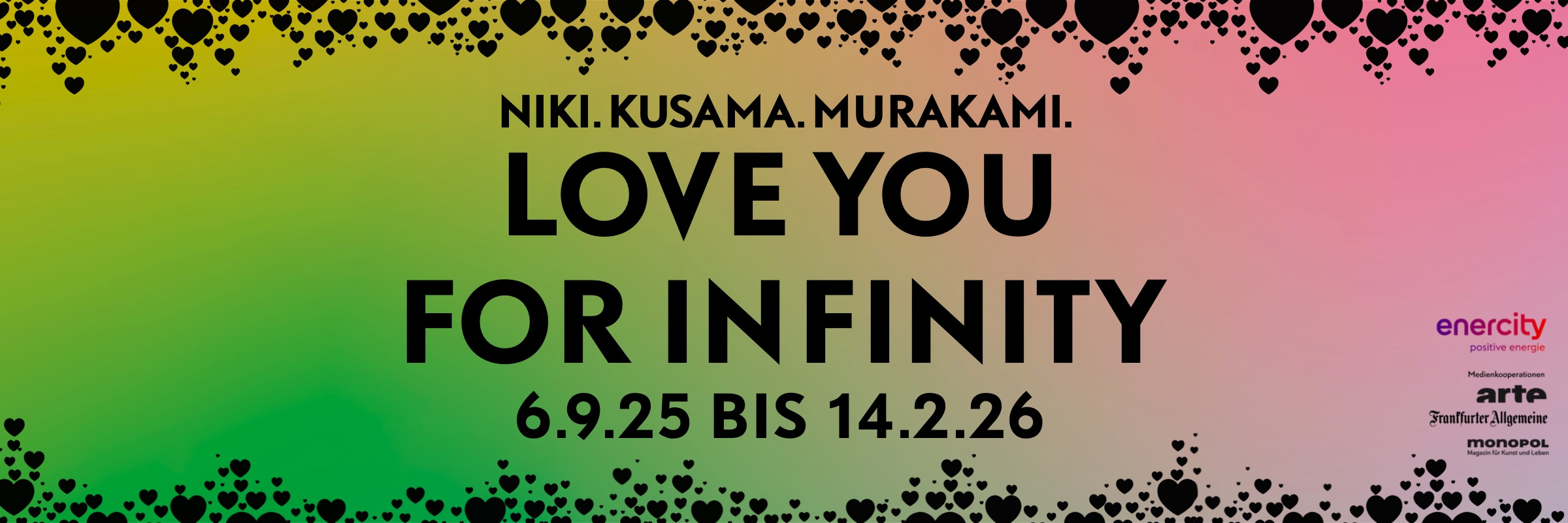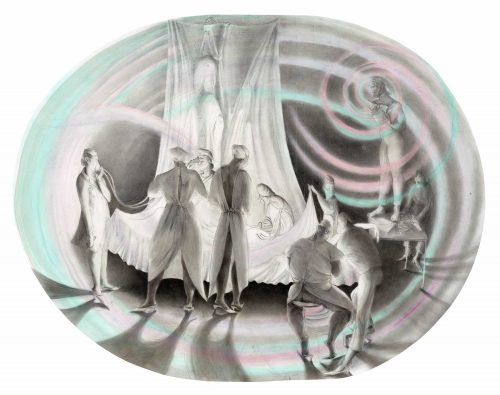
Kira Freije, Richard Dean Hughes, Patrick H Jones, Max Petts, Glen Pudvine, Nour El Saleh, Jesse Wine
This be the verse
Project Info
- 💙 Xxijra Hii
- 💚 Glen Pudvine and Ema O'Donovan
- 🖤 Kira Freije, Richard Dean Hughes, Patrick H Jones, Max Petts, Glen Pudvine, Nour El Saleh, Jesse Wine
- 💜 Matt Carey-Williams
- 💛 Corey Bartle-Sanderson
Share on
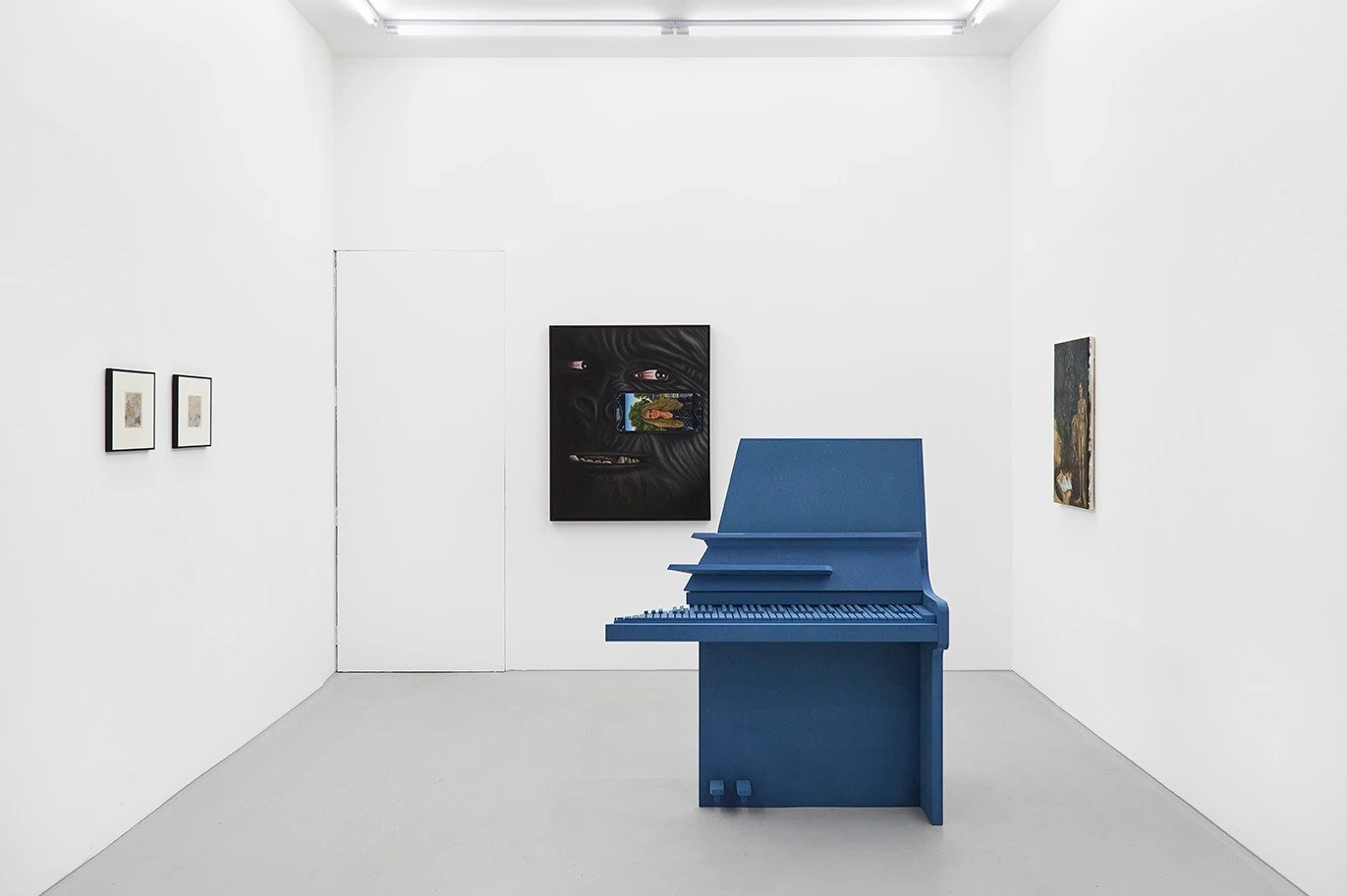
Glen Pudvine & Richard Dean Hughes installation at Xxijra Hii London
Advertisement
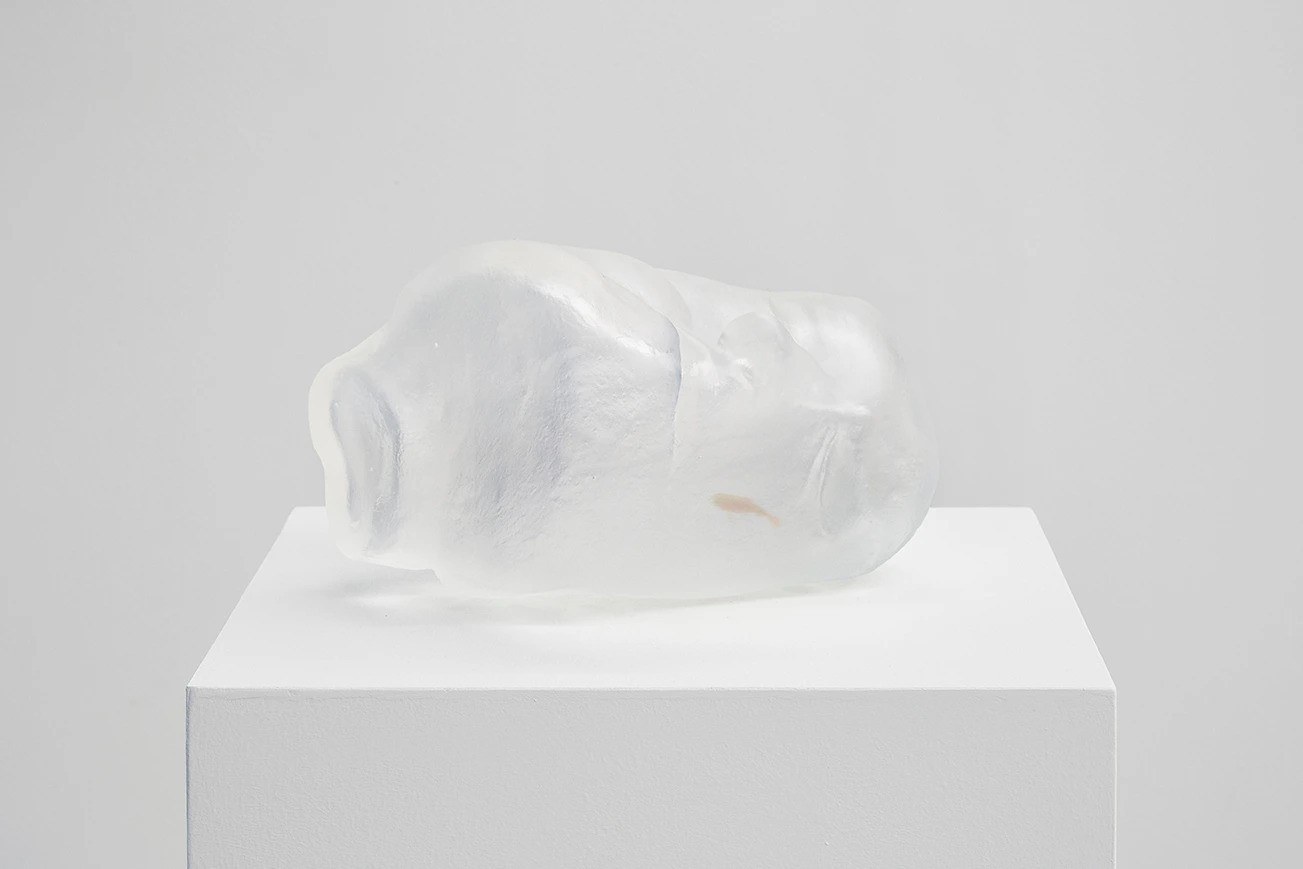
Jesse Wine installation at Xxijra Hii London
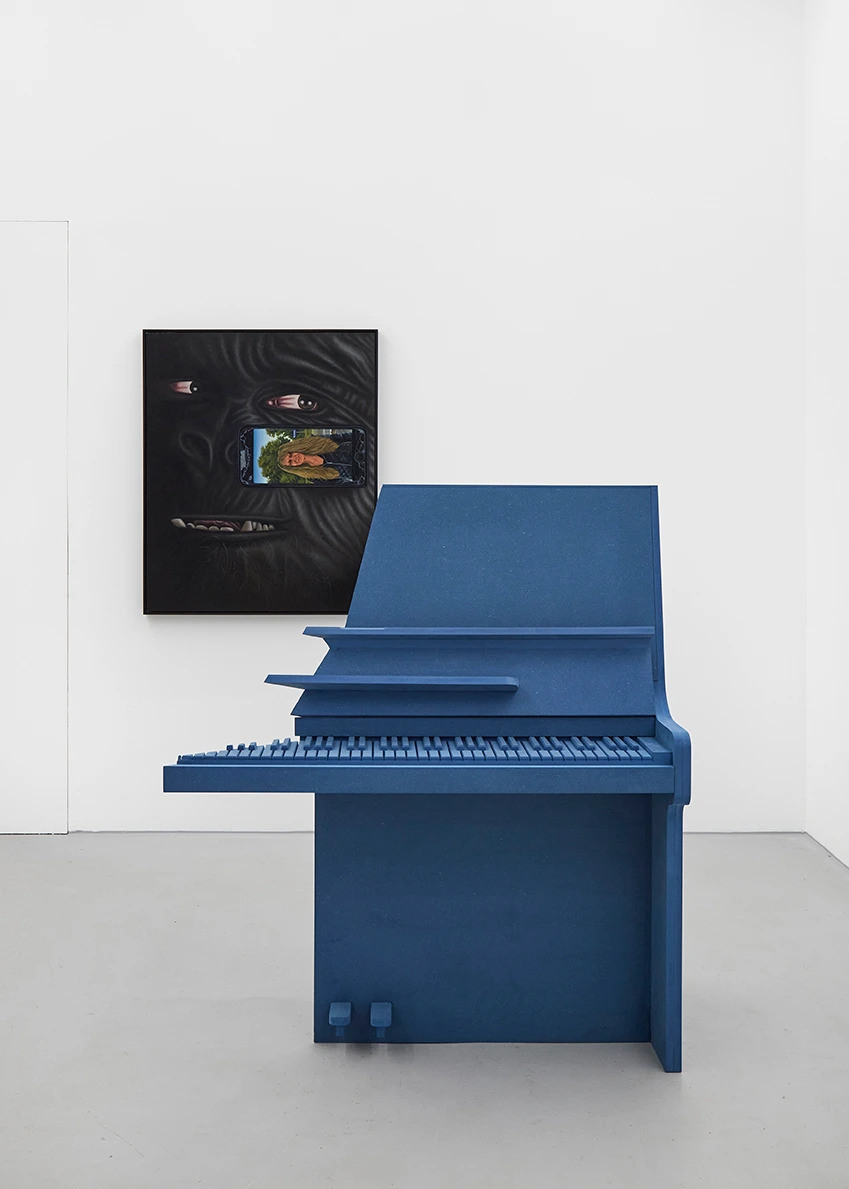
Glen Pudvine & Richard Dean Hughes installation at Xxijra Hii London
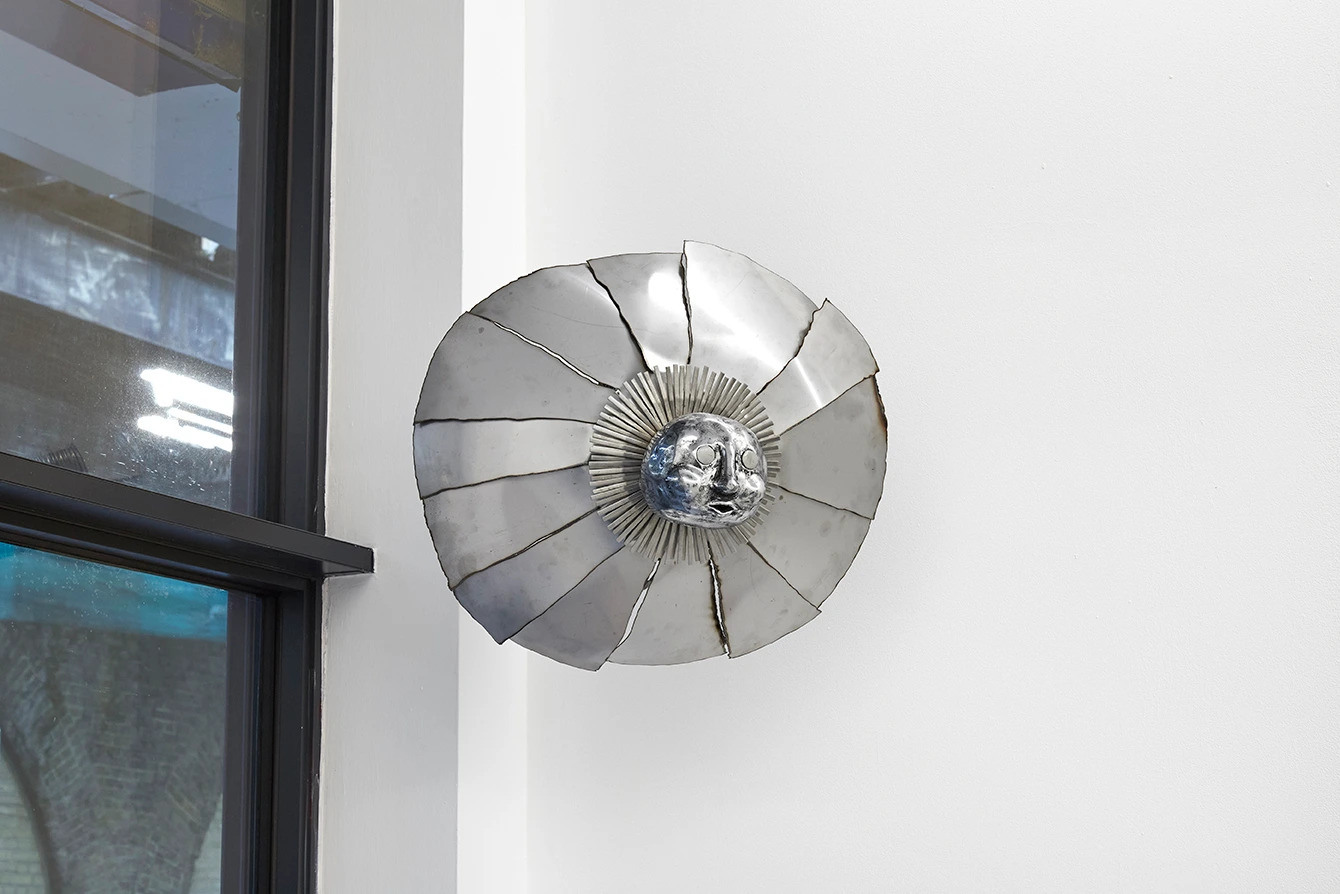
Kira Freije installation at Xxijra Hii London
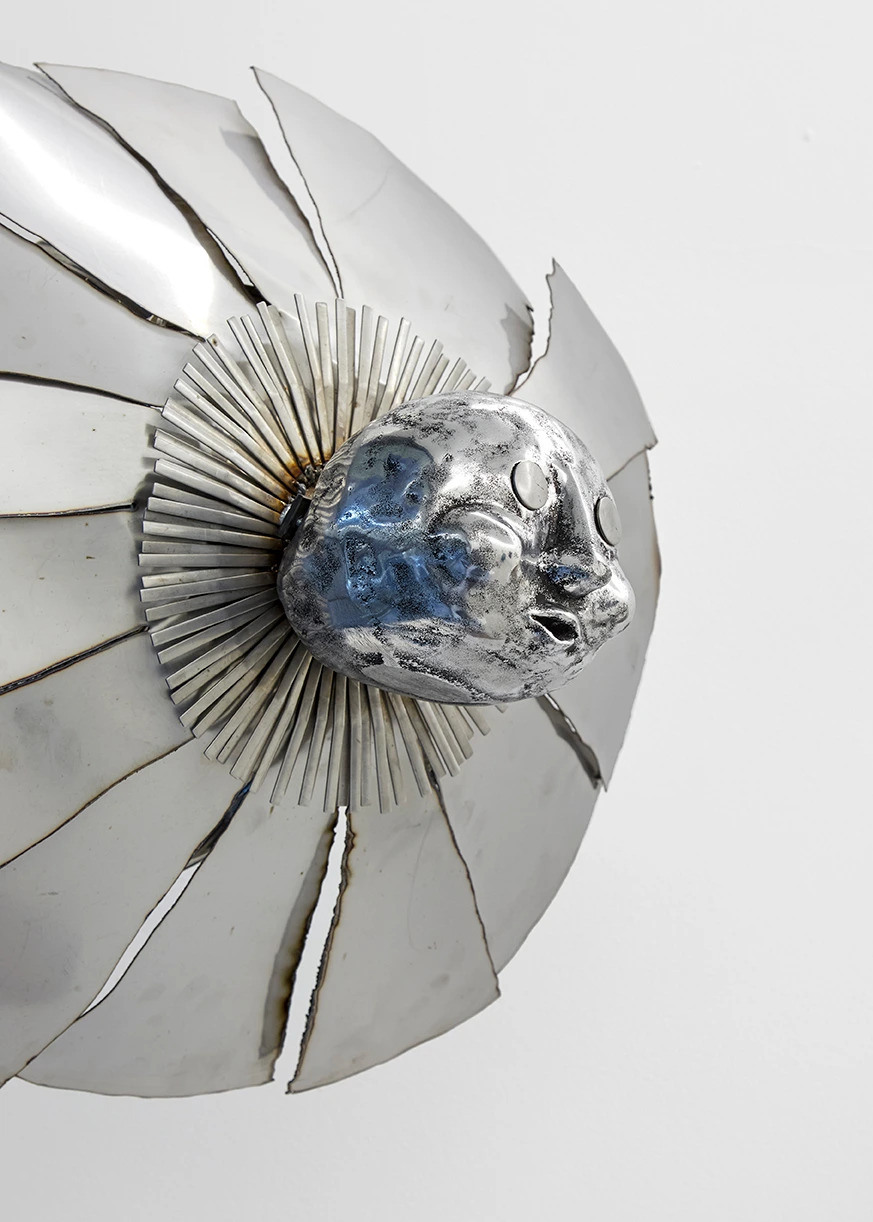
Kira Freije installation at Xxijra Hii London
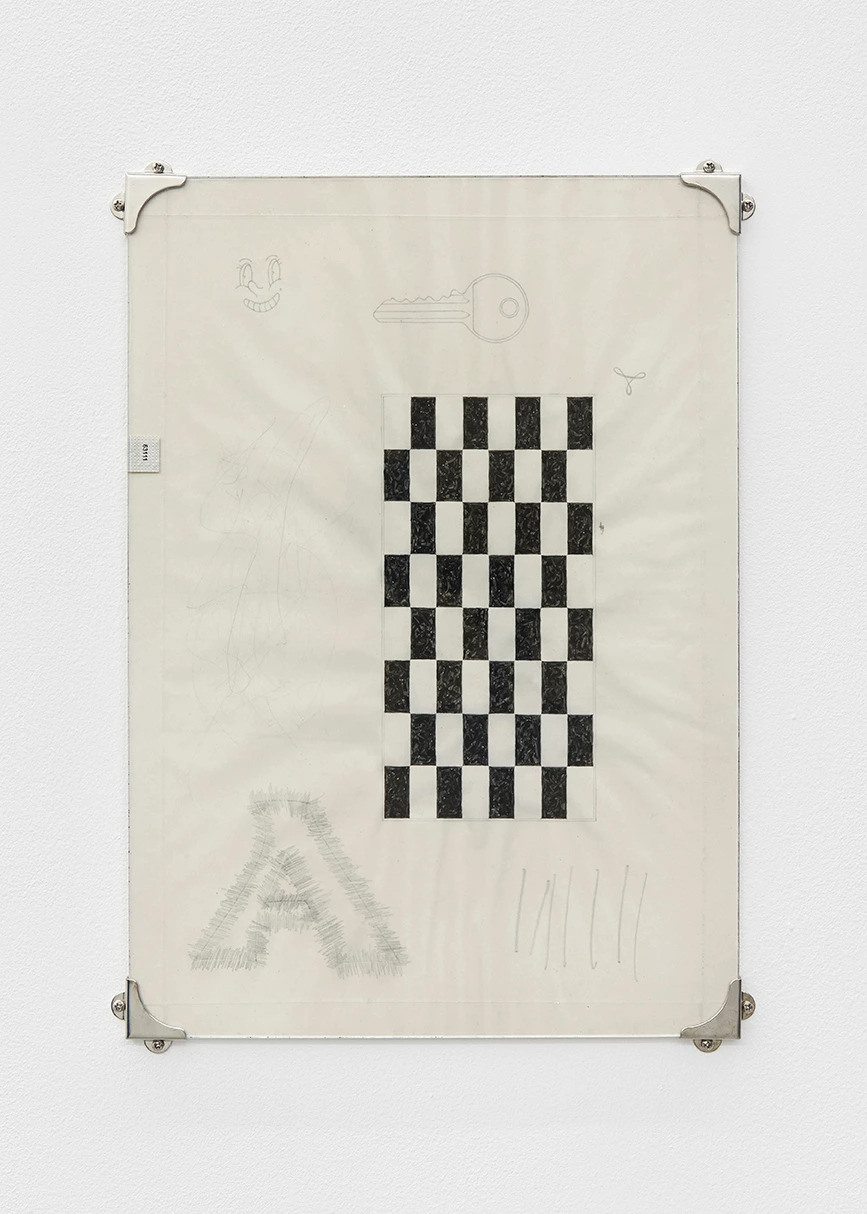
Max Petts installation at Xxijra Hii London
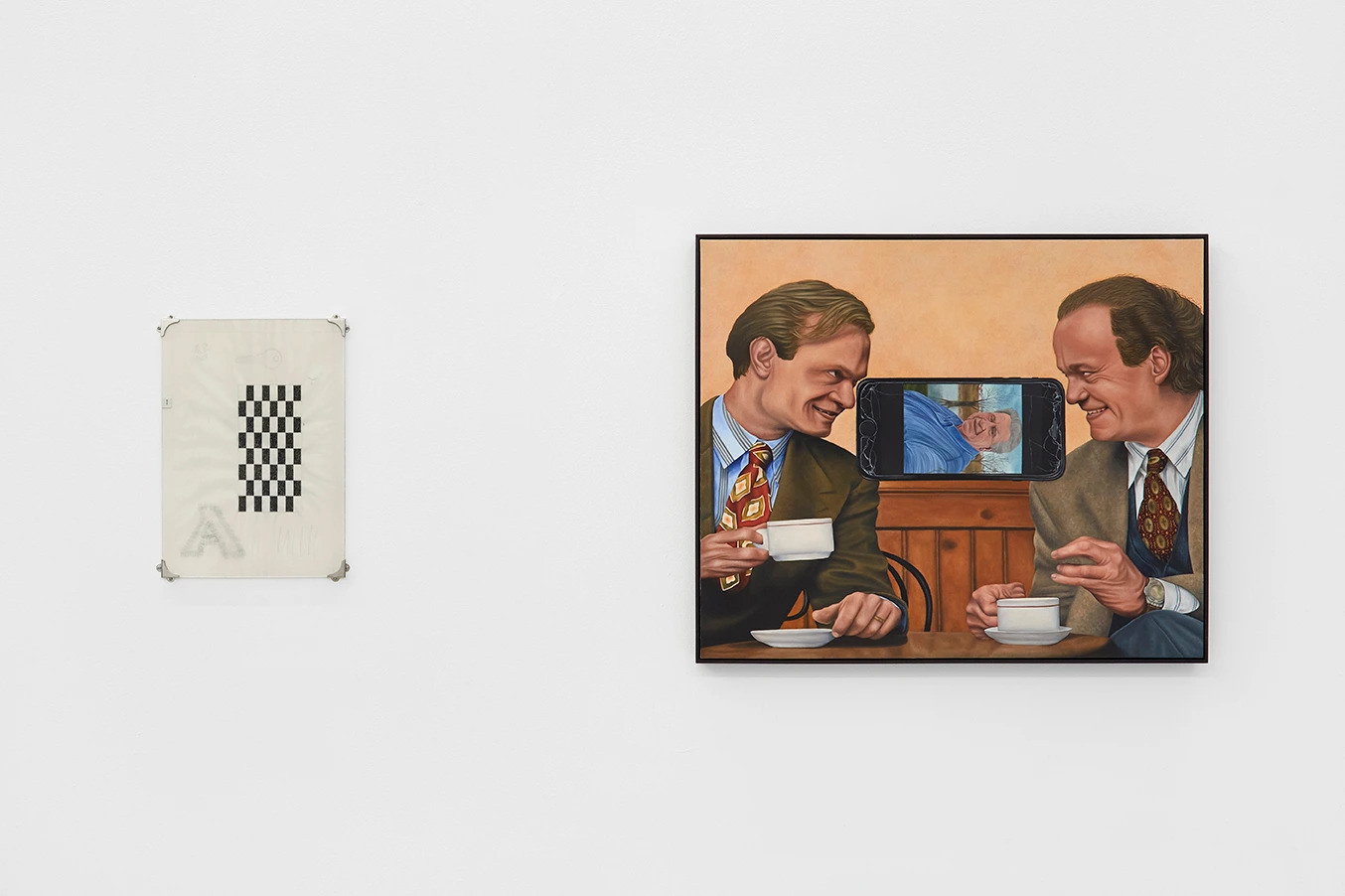
Max Petts & Glen Pudvine installation at Xxijra Hii London
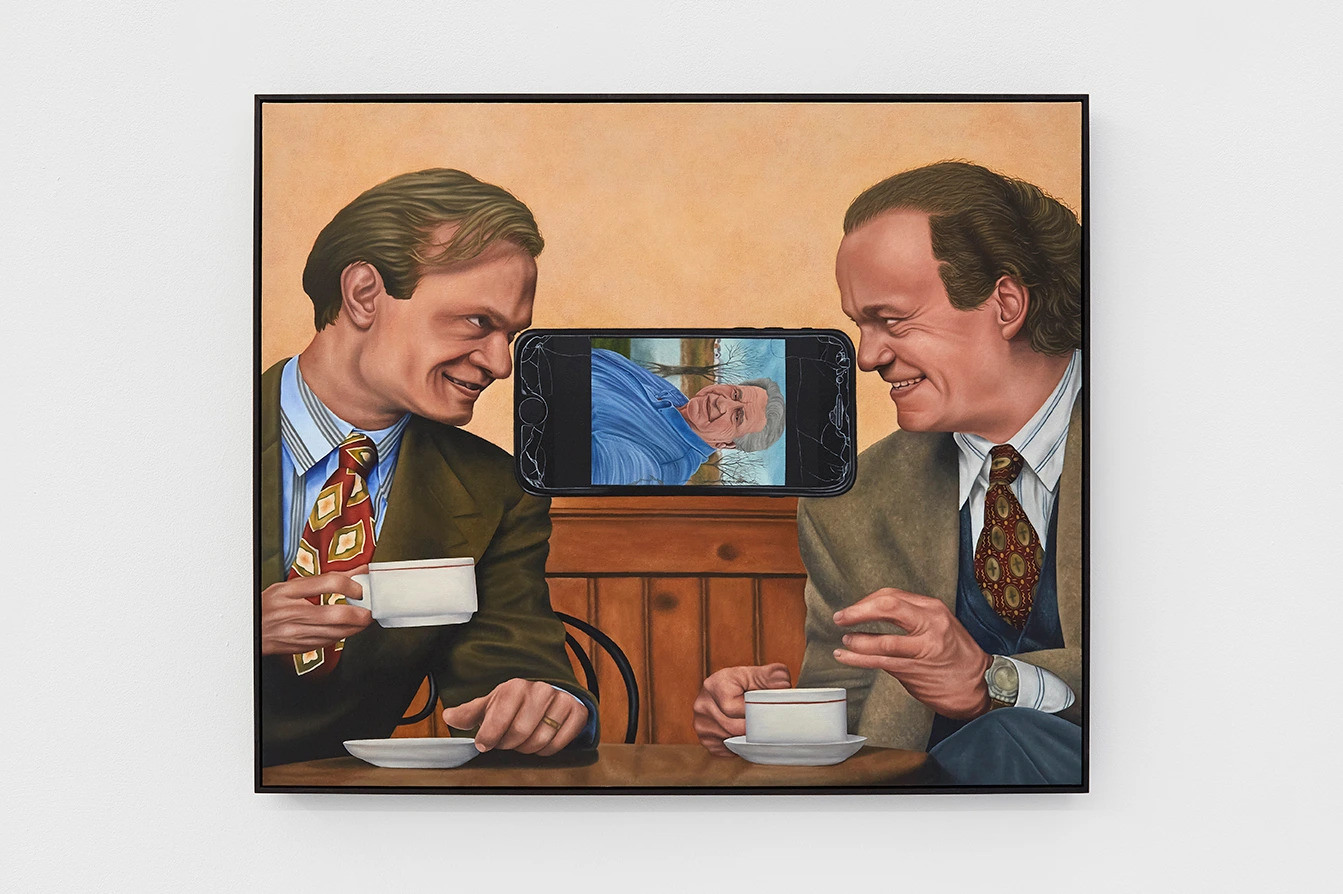
Glen Pudvine installation at Xxijra Hii London
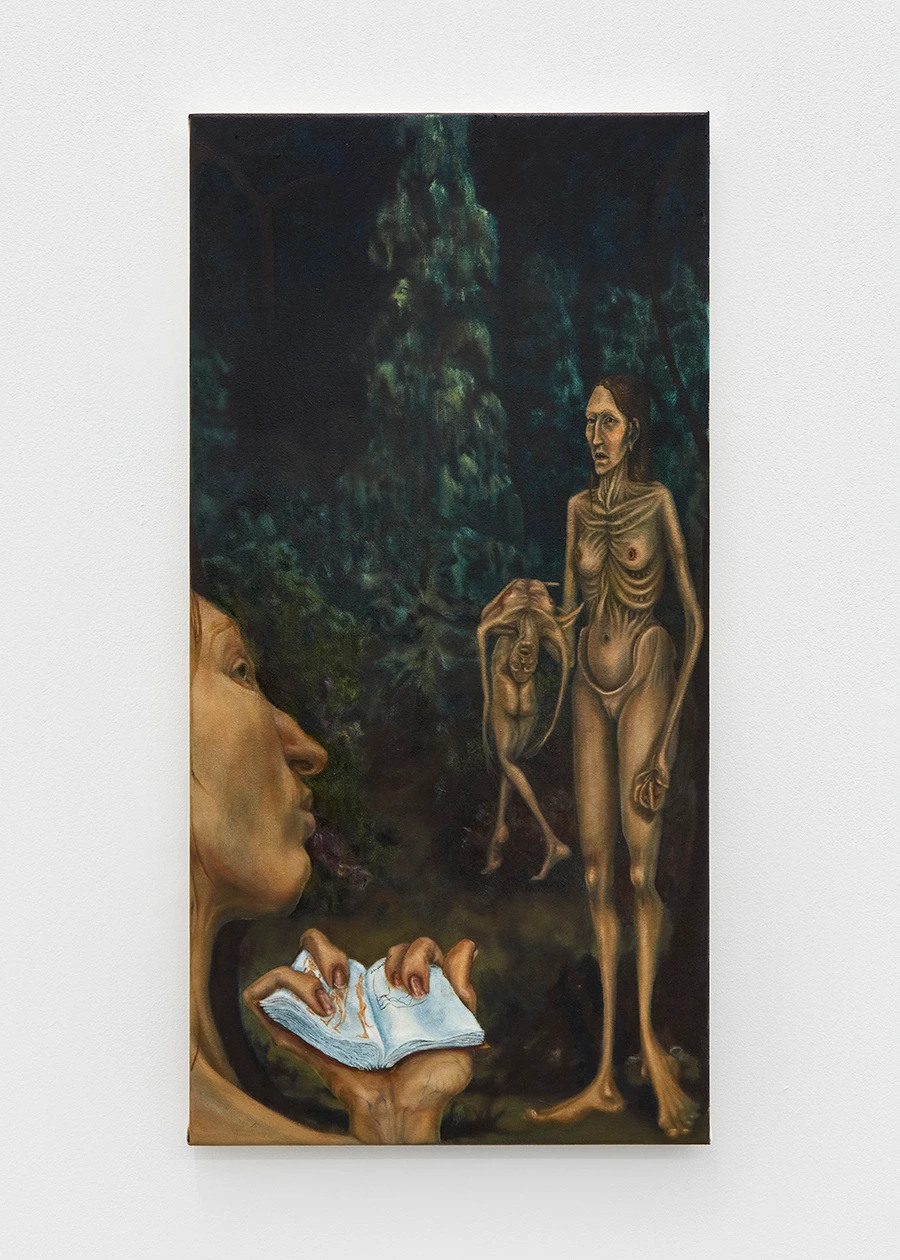
Nour El Saleh installation at Xxijra Hii London
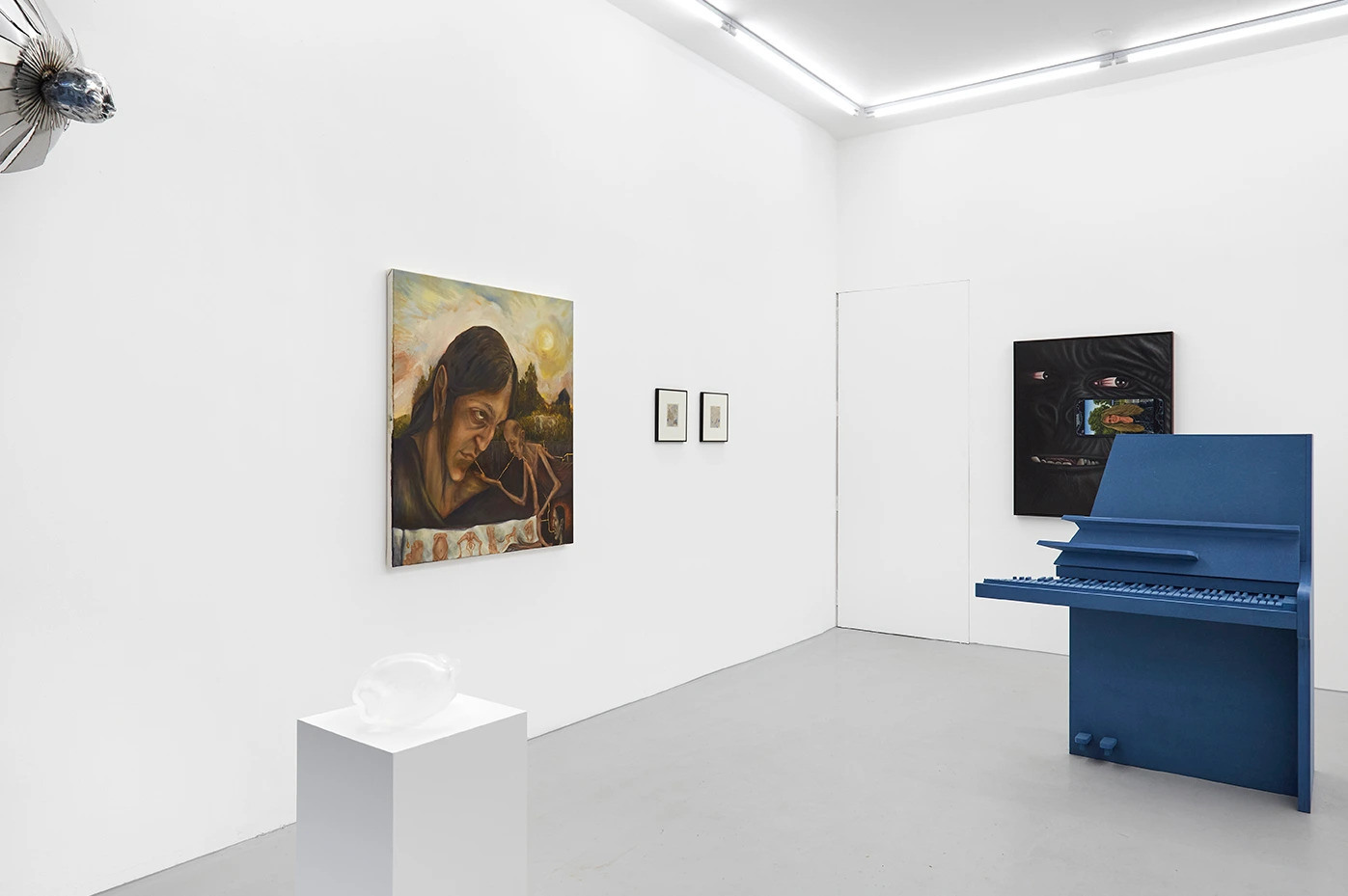
Kira Freije, Richard Dean Hughes, Patrick H Jones, Max Petts, Glen Pudvine, Nour El Saleh & Jesse Wine installation at Xxijra Hii London
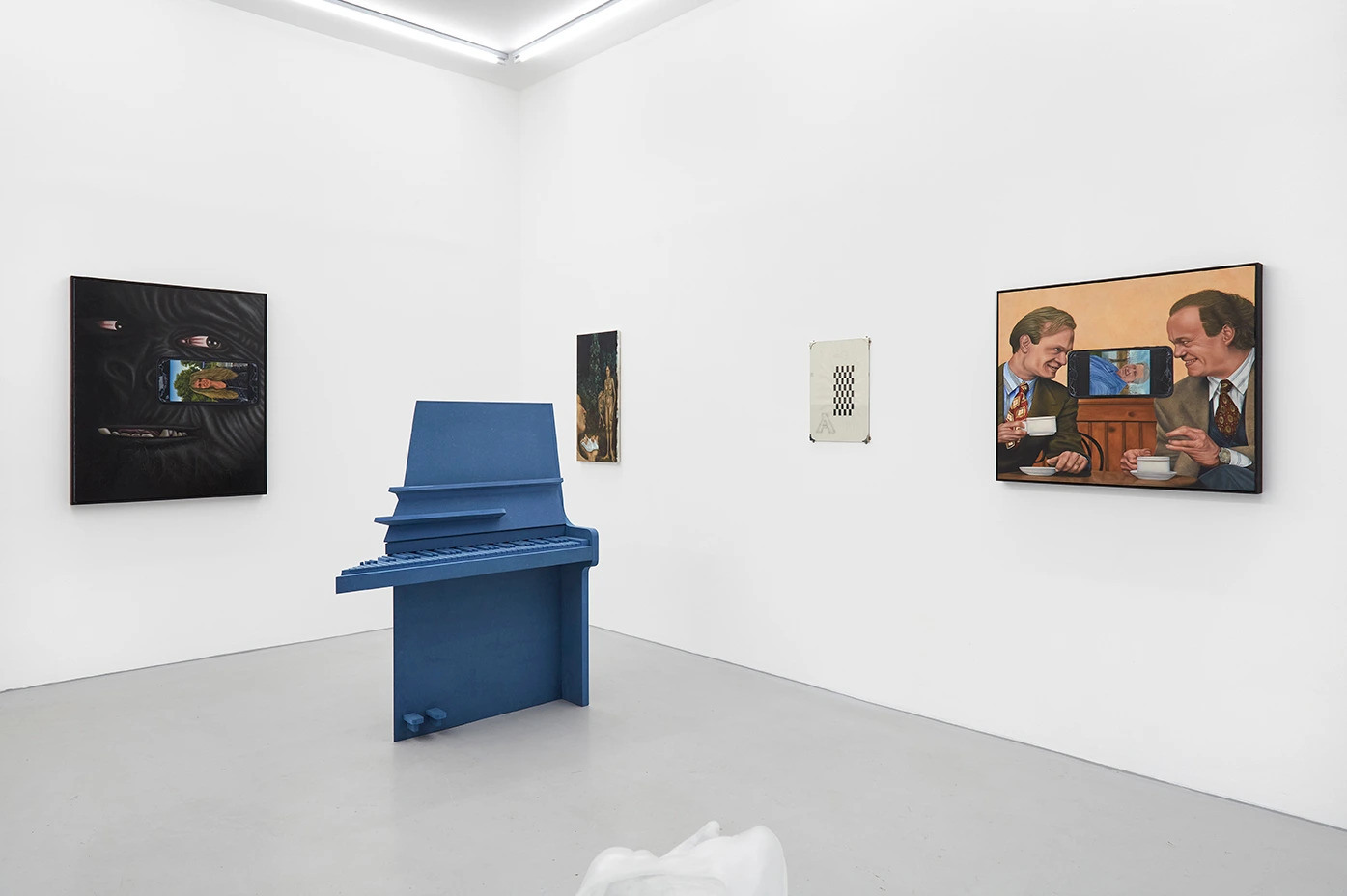
Kira Freije, Richard Dean Hughes, Patrick H Jones, Max Petts, Glen Pudvine, Nour El Saleh & Jesse Wine installation at Xxijra Hii London
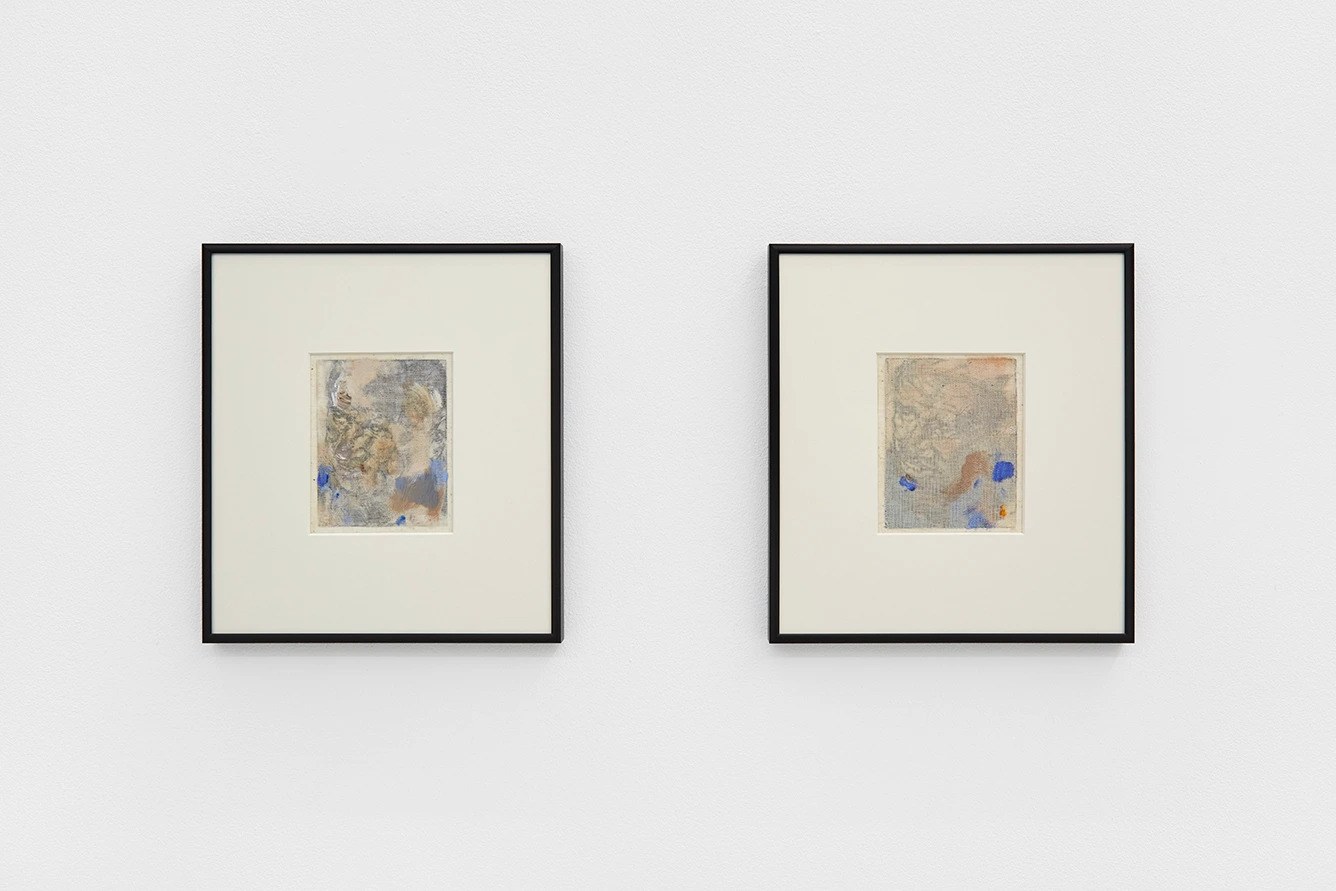
Patrick H Jones installation at Xxijra Hii London
This be the verse.
A group exhibition curated by Glen Pudvine and Xxijra Hii | 2nd December - 20th January 2024
“They fuck you up, your mum and dad.
They may not mean to, but they do.“
Foreword from curators: We both discussed the idea of imprinting a lot, how the source of something irrevocably changes you when it comes into contact - be that physically or in this case aurally.
Inspired by Pudvine’s Mother’s use of the poem ‘This be the verse' by Philip Larkin, the exhibition seeks to draw on experiences positive/negative and all the in-between of parenthood, childhood, parental impression, personal battles with inherited traits or simply the notion of a parent system - a framework that intrinsically includes a 'child’ element (whatever that child may be).
We are working with a variety of artists and mediums in the hope to stimulate a dialogue on the different experiences of cultures, generations and social shifts through the things we teach, are taught (or not taught) as children or as parents ourselves.
What has transpired through shared reference, words and works is that much of the response to our theme is about time and temporality - as humans or just as the world (even if this is at times, another world). This speaks to generational passing of information, disease and memory.
The show then puts forward this sentiment and slight comedic effect, that the initial interaction had between a mother and her son, which has lead us to a group exhibition with different perspectives and now, new imprints being left on one another.
PRISMS OF SCHISMS:
SEVEN SOLILOQUYS OF DISSONANCE
INSPIRED BY THIS BE THE VERSE
Nothing fucks you up quite as fucking much as your fucking mum and dad. So whined Britain’s favourite misery guts, Philip Larkin, in his laureated poem, This Be The Verse. Every angst-ridden, acne-riddled adolescent’s preferred paean to parenticide that unfolds over twelve lines in three stanzas all bouncing along in iambic tetrametric alternating rhymes: its rather merry musicality veiling the poet’s acerbic aversion for parenthood, and for pretty much everybody else, in general. A state that comes with its own genetic burden on both parent and their offspring: the former antagonised by a responsibility to breed; the latter demonised by their parents’ often failed attempts to breed into them codes of responsibility. A combative exchange of nuclear belligerence, both wretched and inexorable, that marks the experience of so many families and which according to Larkin continues ad infinitum and ad absurdum. Do what you’re told, and you can shut the fuck up whilst you’re doing it. The end.
That animus, however, is not the end. It’s just the beginning. Larkin penned his poem sometime between April and May in 1971 (I was born on the 13th of May in 1971: the proximity of my birth and the ironic conclusion of Larkin’s poem is not lost on me as I write this essay). In it Larkin’s words – no matter how demotic his idiom - shift shape, meaning and agency. “They” are the dastardly duo of “your mum and dad”, caught in a tropic, semiotic and semantic entanglement with the word “fuck”. Whilst he only employs that word twice in the poem, the various tributaries of meaning that emerge from this most ancient, venerated yet taboo word lubricate the scaffold and significance of the poem. Just as “mum and dad” is a communion of opposites – male and female; yin and yang; Adam and Eve (the very first parents and look how their fucking kids turned out) – so, too, does the word “fuck” resonate as both positive and negative. To fuck is to copulate and, by extension, reproduce so the word zings with innate fecundity, fertility and thus propensity. Chuck an ‘up’ into your ‘fuck’ and all that potential for growth collapses; the germinal now rendered sterile. Therein lies the rub of Larkin’s iconic poem. It’s a lesson on the irony of how opposites attract yet in their nexus sparks a kind of electrolysis of existentialist angst that never fucking stops.
An alchemy or transmutation of self thus occurs under duress in This be The Verse, with that pressure conducted by “your mum and dad” and choreographed in arabesques of fuckery (to quote Amy Winehouse). Self – as both subject and object – is now problematised by a legacy of alterity that it constantly resists yet which is branded and explained by it. Made manifest in those moments you’re told you’ve got your dad’s ears, or you sound like your mum, themselves sounding notes of Jung’s collective consciousness and, of course, the inheritance of generational trauma it germinates. The divergence of paradigmatic agency in Larkin’s signs of motherhood and fatherhood thus effloresce in those oxymorons of nurture and suffocation; experience and omniscience, lighting a stage upon which contests of control and empowerment; legitimacy and futility pierce each other. The seven artists in this exhibition, named after Larkin’s poem, all occupy that stage and perform similar visual soliloquys of bifurcation and estrangement, inspired by the poet’s terse verse, but in very different ways.
One can look at several works through the lens of the antagonist but also – and differently – through the optics of antagonism. The former offering objects depicting protagonists that are often real and directly related to the artist. The latter providing less descriptive (but no more malleable) works that concentrate on the discombobulation at hand. In short, works that focus on Mum and/or Dad and those that explore the state of unintentional fucked-up-ness they hatch in you.
Nothing says ‘lonely’ more profoundly than a goldfish in a bowl (especially if they’re called Nemo) except Jesse Wine’s bowl is a slightly matte, frosted glass head which appears to be sleeping. The elegant, almost delightful misery of his work, Meantime (2021) begins with its title: a word that suggests a temporal gap between actions or a less considered pause from something much more important. Issues of significance already abound. Separate the word in half and we have “mean” and “time”. Certainly, it feels unkind to put a single goldfish in a bowl so that (usually) a child can pretend to look after it, with the fish’s inevitable demise followed by yet another pet fish that will also charm its owner for a single day or so and, equally inevitably, die in the same way. And so on and so on, a life abbreviated by the innocence of cruelty and the cruelty of innocence, offering shades of the inexperience and stupidity that currently fuel the nefarious politics of hostile segregation we all face. The fact this glass bowl is also a sleeping head extends the work’s arc of meaning. The fish races through the head in repeated acts of attempted freedom, the reason for which is, of course, almost instantly forgotten by the fish, numbed by its inability to remember. The fish can thus be seen as a dream, swimming through sleep, that somehow never really reveals itself. For Larkin, that’s the dream of parenthood that very soon turns into a nightmare of control (or the lack thereof). A dream of instant desire quickly forgotten as it jerks in paroxysms of parental disappointment.
Kira Freije’s forward forward dividing shadows (2022) is a curious object pregnant with possibility. Cast in steel and aluminium, the work looks like a satellite you would find orbiting Earth in the ether. An object known that has entered an unknown but now returned – crashed – and different for it. Various notions of impact – physical, intellectual, and emotional – thus link Freije’s object with Larkin’s lament of parental pressure. Fallen satellites or, better still, meteorites literally come out of nowhere, so that the artist creates a form that alienates both itself and its viewer. It's an antagonism of phenomenological doubt that is further amplified by the form’s evocation as a breast. So it is we hear notes of Larkin’s clash – and crash - of fecundity with futility. Mother now meteorite. Milk now miasma.
Such rancour of antipathy is tilled further by Nour El Saleh and her painting, Code of Conduct (2023). From the lower left corner, a large head looms towards the etiolated figure of a woman – part medieval martyr, part Star-Trek humanoid – who supports the pathetic, flaccid flop of a dead child across her arm. Immediately thoughts of Adam and Eve come to mind, given that the two protagonists are depicted naked in an ominous yet verdant forest. It’s a possible characterisation made more probable by the large, illustrated book that lies between them. The book being that which provides guidelines for successful living and which, clearly, this couple have not followed given the state of their offspring. The book may represent any religious text – Qur’an, Torah, Bible or Dianetics: The Modern Science of Mental Health – but it’s the desire for assertive codification (and thus control) that intrigues El Saleh the most. A desire in and for a system of beliefs – oft phrased simply as faith – that both allies yet dichotomizes in equal measure. The hegemony of one faith will always be torn asunder by that of another cause, much in the same way that Larkin rips up the rulebook of parenting, knowing that another, bastardised version gets handed down.
Totems and tokens of mothers and motherhood incite the very different work of Max Petts and Richard Dean Hughes. Petts’ surfaces sing through a chorus of means and media. This serves to relax the geometry of their marked surface in Dead Ranks Dead Files (looky looky - signs that sign - you said it’s just scribbles - subject to a little scrutiny and that certainty begins to waiver - 4 - A - sealed) (2023) – a chessboard – and, therefore, the many indices that pattern proposes: strategy, composition, and conflict, all orchestrated by someone’s mum and dad (The Queen and King). The title brings to the fore the artist’s continued attempt to make sense of themself – as son, grandson, and artist – within their own family dynamic; a family also filled with other artists. “… you said it's just scribbles” is a direct reference to a memory Petts has of arguing with their mother – also an artist – as a boy. And so the chessboard – that site of order and authorisation – slowly but surely melts into mosaics of memory. The objective now subjective; design now dependent upon the constant latticing and unpicking of otherness in and with oneself, much as Larkin’s version of parenthood quickly shifts from natal to alien; from desired to detested.
Likewise, Richard Dean Hughes’ Glacier (2023) also takes a familiar form – this time a piano – but arrests both its image and index in an aggressive yet very nuanced manner. A piano, painted blue, has been cut in half. A few pebbles of glass representing ice are scattered on its silenced keys. That rupture is magnified manifold times when one finds inside the piano a cascade of more glacial shards that seem to protect a painting of Ötzi, the so-named copper man who died over 5,000 years ago and was found – mummified – in a South Tyrolean glacier in 1991. Hughes thus fuses a primordial father figure with the literal process of preservation that mummification provides, but now presented in the even more fluid context and environment of the ripped piano. The piano being a leitmotif for cultural ambition and one which is especially handed down from generation to generation of families who are rich enough to own one. It’s here, on this more politicized dais, that this work really resonates. The haves handing down knowledge as heirlooms (whereas Larkin’s heirloom is just simple “misery”) to other haves whilst the have-nots sit in the ice, suspended indefinitely, for their chance to be heard (unlike the piano, now robbed of its ability to make any sound).
If mothers – remembered in dispute; adumbrated as process – provoke the previous two works, then the final two artists certainly make prints and paintings that face up to several issues posed by fathers and composed and deposed by them as sons. Patrick H. Jones has made a series of beautiful, sinewy etchings of his father who recently passed away. You can almost feel that passing in Jones’ supple, meandering line as it evaporates into nebulous clouds of ground, scratched with colour and trowelled with greasy pigment. The age-old binary of presence and absence feeds further explorations into the introspection generated by such grief because, as some of us know, the easiest way for your mum and dad to fuck you up is to die. The artist’s process also nourishes this trajectory of thought. The initial image is actually an etching which is later embellished. As such, the first forays into rendition – bringing something to life – remain unseen (if not unfelt) by the artist who finds the form of his father by scratching in the dark annals of his memory much as he blindly scratches over his printing plate.
The final artist, and one whose body of work has thus far seen him personally negotiate various tropes of patriarchy - and the Phallic powers those punches pack – is Glen Pudvine who, along with Ema O’Donovan, co-curated this exhibition. Pudvine’s Talking About Dad (2023) is literal, humorous and something of a confession. The characters Frasier and Niles Crane from the American comedy series, Frasier, are depicted drinking coffee with each other. They are separated by a cracked iPhone, rendered horizontally but which only registers an image of Pudvine’s own father vertically. Like the cracks on the phone, it’s a mild discomposure that will only get worse over time. The question, then, is what kind of verse does Pudvine recite here vis-à-vis his own relationship with his own father? Frasier and Niles are somewhat dogged by their father, Martin. He’s a down-to-earth, beer-drinking guy’s guy who loves sports whereas his sons - doctor and psychiatrist - are sophisticated (and rather pretentious) gourmands. The gap between their interests serves many a joke in the TV series but, here, that gap (at least between the two fictional characters) is emblematised by a real image of Pudvine’s actual father taken by Pudvine’s brother on his father’s 70th birthday. Now this all speaks of some rather mauve disassociation between father and son, however, the reason Pudvine has chosen the Frasier narrative as a kind of visual and even emotional anchor is because, when he was younger, he and his father would watch Frasier together every morning whilst sharing a cup of coffee. So it is that the story of the Crane brothers and their father – and all the various shenanigans they get up to – is inextricably linked to that of the Pudvine brothers and their dad. And therein lies the artist’s touching yet testing confession; one that deconstructs himself in the context of two families and two fathers: one he’s bound to by biology, the other he finds (and shares) in sheer banality because, after all, it’s rather fun to get fucked-up by and with your dad, even if Larkin suggests otherwise.
The final stanza of Larkin’s poem operates as a klaxon call to stop the bus headed to parenthood and get off as quickly as you fucking can. We’re born, we spawn, we die, and oiling that trinity is all the abject misery generated by unwanted parental responsibility and which feeds your children’s contempt of you as a result. Handed down to you by your mum and dad as it was handed down to them by theirs. The works in this exhibition don’t quite call for Larkin’s ironic beginning of the end, yet their shifting statuses as physical objects and multi-laminated propositions do unveil a shared vocabulary of apprehension and unease. A language of arrest and conflict visually rendered in visceral acts of cutting, smearing, isolating, layering and, above all else, splitting. In the final analysis Larkin’s syntax touches his reader only relatively, consciously lightly, and is deliberately employed by him with consummate sardonicism. These artists’ inspiration by and transformation of such sentiments result in an exhibition propelled by a darker dynamo, replete with searching objects, forms and surfaces that shake the viewer and force them to look at our dissonant world through a prism of schism. That being the fucked-up contest at hand, not just between pressured parents and their mollycoddled children, but between the bigger, much more fucked-up shape of things and the even more fucked-up shape of things to come.
Matt Carey-Williams
19 November 2023
Sandy Lane, Wiltshire
Matt Carey-Williams is an independent curator and writer and the Founding Director of MCW Fine Arts.
Matt Carey-Williams
